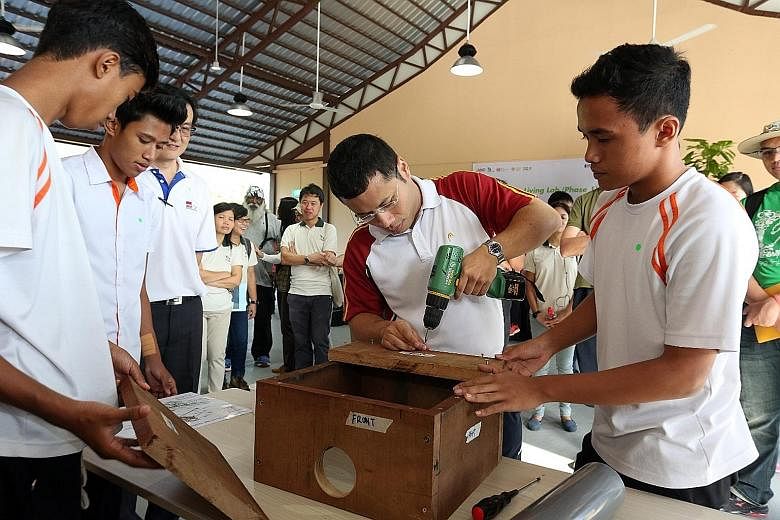To help researchers, students and environmental groups study Pulau Ubin, a $2 million facility was opened yesterday on the south- western tip of the island.
Two buildings at the former Celestial resort have been refurbished to house the Ubin Living Lab.
With the completion of its first phase, the facility has meeting and seminar rooms that can accommodate about 100 people, two laboratories, a multi-purpose hall and basic accommodations.
An additional National Parks Board (NParks) site office, a basic first-aid room and an outdoor campsite have also set up within the compound. The second and final phase will include potable water and electricity provided by renewable energy sources.
The initiatives were announced by Prime Minister Lee Hsien Loong in 2014 under The Ubin Project after requests from the Friends of Ubin Network.
Public consultations were also held in which Singaporeans asked the Government to protect the island's biodiversity and enhance it natural habitats.
Senior Minister of State for Home Affairs and National Development, Mr Desmond Lee, who was at the opening ceremony, said: "Over the next few months, several exciting plans will be rolled out. Community in Nature programmes such as coastal clean-ups, field studies and nature workshops will be held here, using the Ubin Living Lab as a focal point and launch pad.
"A mangrove arboretum will also be set up by NParks and the community within Ubin Living Lab, near Sungei Puaka. Thirty-five mangrove species will be introduced as part of the ongoing reforestation efforts under the Ubin Project, of which eight are critically endangered."
Mr Joseph Koh, an honorary research affiliate at the National University of Singapore's Lee Kong Chian Natural History Museum, said: "We have found a new platform for (researchers) to educate science teachers, people who are interested in ecology, engage the future generation and educators. To get people to appreciate and cherish Ubin and biodversity here."
As part of species recovery efforts, Republic Polytechnic environmental science student Yee Kah Mun and her team are making prototype "bat boxes" for bats to roost in.
Their aim is to help increase the population of the critically endangered ashy roundleaf and lesser false vampire bats.
"Very little research has been done on bats in tropical countries," said the 20-year-old. "We took four months to do research and finished the modelling in one month."
A group of five ITE East students are also aiming to boost the population of blue-throated bee-eaters by building nesting boxes.
Correction Note: An earlier version of the story gave the name of the facility as Ubin Learning Lab, instead of Ubin Living Lab. We are sorry for the error.

